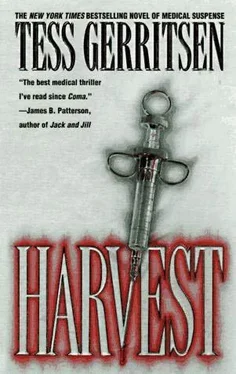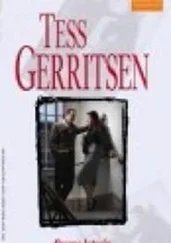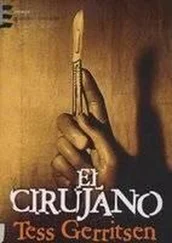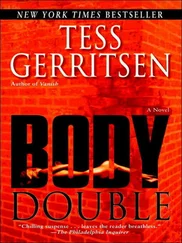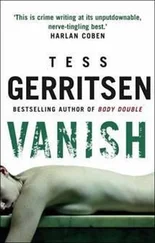Mark said, "Is something wrong?"
Marilee looked up and blinked, as if noticing Mark for the first time. Then she looked back down at the counter. At her drink.
"They found Aaron," she said.
It was the grinding of the Stryker bone saw that usually did it; that or the smell. This one smelled pretty bad.
Homicide Detective Bernard Katzka glanced across the autopsy table and saw that the stench had gotten to Lundquist. His younger partner was turned partially away from the table, gloved hand cupped over his nose and mouth, his movie-star good looks twisted into a squint of nausea. Lundquist had not yet developed the stomach for autopsies; most cops never did. While the cutting open of dead bodies was not Katzka's favourite spectator sport, over the years he had trained himself to view the procedure as an intellectual exercise, to focus not on the humanity of the victim but on the purely organic nature of death. He had seen bodies cooked in fires, bodies scraped off the pavement after twenty-storey free falls, bodies shot or stabbed or both, bodies gnawed by rodents. Except for the children, which always upset him, one body was like any other on the table, a specimen stripped, examined, and catalogued. To view them any other way was to invite nightmares.
Bernard Katzka was forty-four years old and a widower. Three years ago, he had watched his wife die of cancer. Katzka had already lived his worst nightmare.
He focused impassively on the body now being autopsied. The corpse was a fifty-four-year-old white male, married with two college-aged children, a cardiologist by profession. His identity had been confirmed by fingerprints as well as visual ID by the widow. The experience must have been profoundly upsetting to her. Viewing the corpse of a loved one is difficult enough. When that loved one has been hanging by the neck for two days in a warm and unventilated room, the sight would be truly horrifying.
The widow, he'd been told, had fainted dead away on the morgue floor.
And no wonder, thought Katzka, looking down at the corpse of Aaron Levi. The face was a bloodless white; its arterial supply had been cut off by the pressure of the leather belt looped around the neck. The protruding tongue was a scaly black, its mucous surface dried out by two days' exposure to air. The eyelids were only partially closed. The slitted openings revealed scleral haemorrhages which had turned the whites of the eyes a frightening blood-red. Below the neck, where the belt had imprinted its ligature mark, the skin showed the classic pattern of dependent pooling, a bruise-like discoloration of the lower legs and arms as well as pinpoint haemorrhages, called Tardieu spots, where vessels had ruptured. All of this was consistent with death by hanging. The only visible injury, aside from the ligature marks around the neck, was a coin-shaped bruise on the left shoulder.
Dr. Rowbotham and his assistant, both gowned, gloved, and wearing protective goggles, completed the thoraco-abdominal incision. It was shaped in aY, two diagonal incisions starting at the shoulders and joining at the lower end of the sternum, then a vertical slice down the abdomen to the pubic bone. Rowbotham had served thirty-two years with the ME's office, and very little seemed to surprise or excite him. If anything, he looked slightly bored as he cut into the body. He was dictating in his usual monotone as his foot clicked on and off the recording pedal. Now he lifted off the triangular shield of rib and breastbone and exposed the pleural cavity.
"Take a look, Slug," he said to Katzka. The nickname had nothing to do with Katzka's appearance, which was average in every way. Rather, it was a reflection of Katzka's unflappable nature. Among his fellow cops, the running joke was that if you shot Bernard Katzka on a Monday, he might react by Friday. But only if he was pissed.
Katzka leaned forward to peer inside the chest cavity, his expression every bit as flat as Rowbotham's. "I don't see anything unusual."
"Exactly. Maybe a little pleural congestion. Probably due to capillary leakage from hypoxia. But it's all consistent with asphyxiation."
"So I guess we're out of here, huh?" said Lundquist. Already he was sidling away from the table, away from the smell, impatient to get on to other things. He was like all the other young bucks, eager to cut to the chase. Any chase. Suicide by hanging was not something he wanted to waste his time on.
Katzka did not move from the table.
"We really need to watch the rest of this, Slug?" asked Lundquist. "They're just starting."
"It's a suicide."
"This one feels different to me."
"The findings are classic. You just heard it."
"He got out of bed in the middle of the night. He got up, got dressed, and climbed in his car. Think about it. Getting out of your nice warm bed to go hang yourself on the top floor of a hospital."
Lundquist glanced at the body, then looked away again.
By now Rowbotham and his assistant had severed the trachea and the great vessels and were removing the heart and lungs in one floppy bundle. Rowbotham dropped them into a hanging scale. The steel cradle bounced a few times, squeaking with the weight of the organs.
"It's your only chance to view it," said Rowbotham, his scalpel now at work on the spleen. "We finish up here, and it goes straight to burial. Family request."
"Any particular reason?" asked Lundquist.
"Jewish. You know, quick interment. All the organs have to be returned to the body." Rowbotham dropped the spleen in the scale and watched as the indicator needle quivered, then came to a rest.
Lundquist yanked off his autopsy gown, revealing shoulders bulky with muscle. It was all those hours in the gym, pumping and sweating. He had restless energy and he was showing it now. Always on to bigger and better things, that was Lundquist. Katzka still had to work on him, and the lesson today ought to be the fallibility of first impressions — not an easy thing to get across to a young cop who had all that confidence, all those good looks. That and a full head of hair.
Rowbotham continued with the disembowelment. He cut free the intestines, pulling out what seemed like endless loops of bowel. The liver, pancreas, and stomach were removed in a single mass. Finally the kidneys and bladder were dissected out and dropped in that squeaky scale. Another weight was called out, recorded. A few more mutterings into the tape recorder. What was left was a gaping cavity.
Now Rowbotham circled around to the corpse's head. He made an incision behind one ear and cut straight across the back of the scalp. He peeled the scalp forward in one flap, doubling it over the face. Then he peeled the other flap back over the neck, exposing the base of the skull. He picked up the oscillating saw. His expression twisted into a grimace as the bone dust began to fly. No one was talking at this point. The saw was too noisy, and the procedure had turned sickening. Cutting into a chest and abdomen, though grotesque, was somehow impersonal. Like butchering a cow. But peeling a man's scalp over his face was mutilating the most human, the most personal aspect of a corpse.
Lundquist, looking a little green, suddenly sat down in a chair by the sink and dropped his head in his hands. Many a cop had made use of that particular chair.
Rowbotham put down the saw and removed the skull cap. Now he freed up the brain for removal. He cut the optic nerves and severed the blood vessels and spinal cord. Then, gingerly, he lifted the brain out in one quivering mass. "Nothing unusual," he said, and slid it into a pail of formalin.
"Now we get down to the nitty gritty. The neck."
Everything that had come before this was merely preliminary to this stage. The removal of viscera and brain had allowed drainage of fluids out the cranial and chest cavities. The neck dissection could proceed with a minimum of obscuring blood and fluids.
Читать дальше
